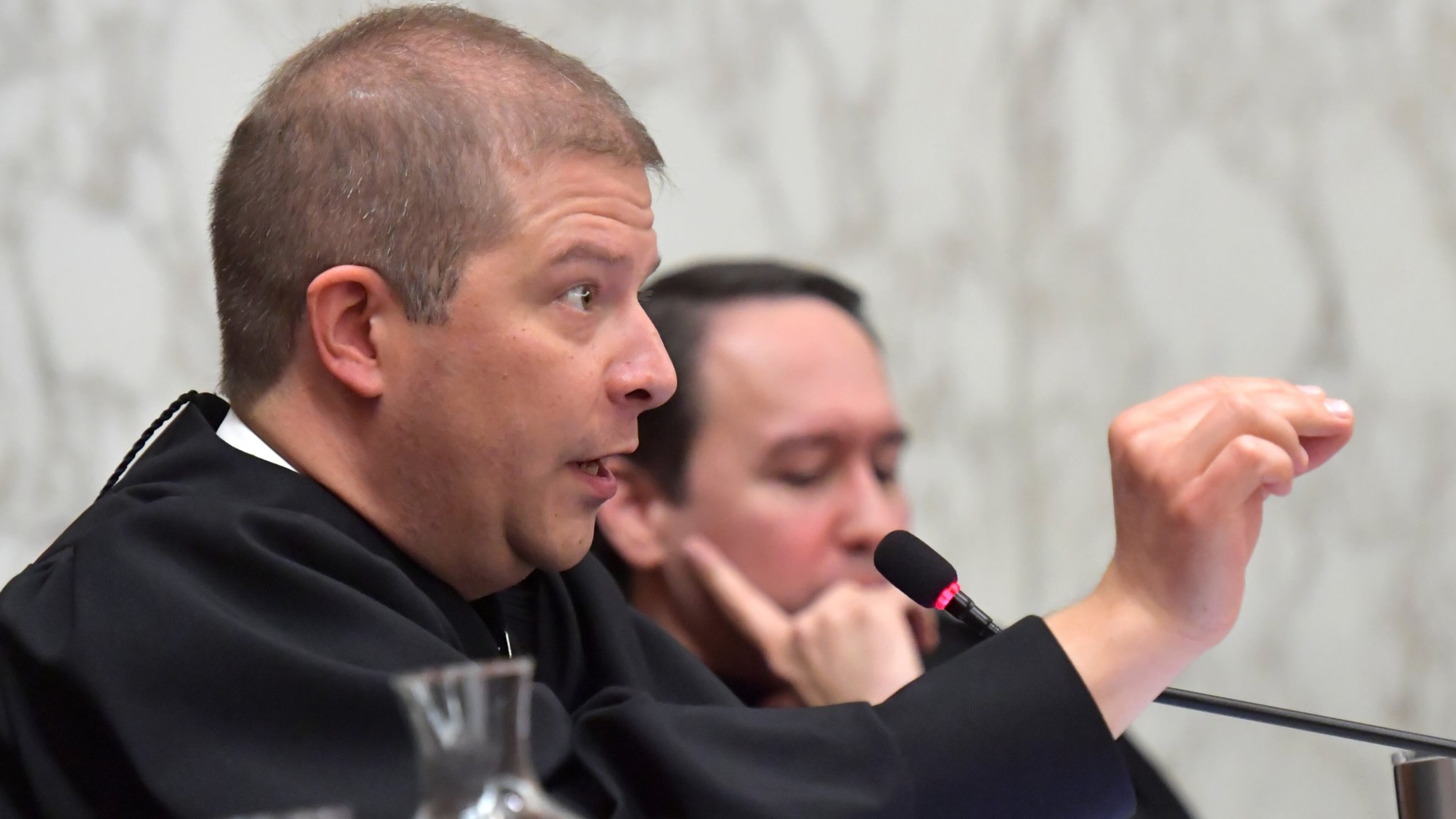Justices: Judge in Tara Grinstead case should allow appeal on funding

It’s taken nearly 14 years for Tara Grinstead’s alleged killer to stand trial.
Yet Tuesday’s hearing before the state’s highest court suggested that the South Georgia beauty queen’s family may have to wait a little longer to see if Ryan Alexander Duke is convicted of her murder.

Previously, an Irwn County judge denied a request from Duke’s defense team for funds to hire expert witnesses to challenge forensic evidence being used against him. Then Superior Court Judge Bill Reinhardt told the defense attorneys they couldn’t appeal his decision before trial.
Justices on Georgia’s Supreme Court sounded deeply skeptical of Reinhardt’s decision not to let them answer question before a jury weighs in. Some suggested if Duke goes to trial without the funding and is convicted, that conviction could be overturned and the case would have to be tried all over again.
“Didn’t the trial court get it wrong?” asked Justice Nels Peterson, referring to Reinhardt’s decision not to allow the pretrial appeal on expert funding.

The state Supreme Court has never decided such an important question of “constitutional magnitude,” Peterson said.
Duke had been scheduled to stand trial in the highly-publicized case on March 4. Grinstead, 30, was reported missing in October 2005 when she failed to show up to teach history at Irwin County High School. Duke was not arrested until February 2017.
Last summer, Duke decided not to have a public defender represent him and retained John and Ashleigh Merchant, a husband-and-wife team of lawyers from Marietta, as well as Atlanta lawyer Evan Gibbs. The Merchants and Gibbs are representing Duke pro bono — or free of charge.
As the trial neared,
an expert to analyze findings from a computer program linking DNA on a latex glove found outside Grinstead’s home to Duke;
; and a psychologist to evaluate Duke.
Reinhardt found Duke was indigent and had demonstrated a “compelling” need for the experts. But he denied the funding request. Because Duke has pro bono counsel, not a public defender, he cannot receive state funds, the judge said.
Under Georgia law, if a defendant wants to appeal such a decision before trial to the Georgia Supreme Court, he must get the trial judge’s permission to do so. When Duke’s pro bono lawyers asked Reinhardt to let them appeal his decision, the judge denied it. But the pro bono lawyers appealed it anyway, citing a 19-year-old case in which the state Supreme Court allowed a similar appeal without a judge’s permission.
Just four days before jury selection, the state Supreme Court halted the trial and said it would decide whether defendants like Duke could pursue their pretrial appeals even when their judges had denied their requests to do so.
This development led the prosecution team to criticize the high court in legal briefs filed before Tuesday’s arguments.

For the trial, six hundred jurors had been summoned and answered questionnaires, and more than 100 witness subpoenas had been served, the District Attorney’s Office said. This meant the court’s decision to postpone the trial had usurped Reinhardt’s ability to control the case “at great expense to the taxpayers of Irwin County.”
On Tuesday, Gibbs, one of Duke’s pro bono lawyers, asserted the Supreme Court could still hear the appeal without Reinhardt’s permission. But it soon became clear the justices were going to rule against him.
After Chief Assistant District Attorney J.D. Hart rose to argue, the justices’ focus shifted completely.

Why wouldn’t you want this question answered before trial? Justice Sarah Hawkins Warren asked.
Justice Keith Blackwell was even more blunt. He suggested Reinhardt should reverse his decision to deny the pretrial appeal and allow it to go forward.
That would delay Duke's trial once again, this time for several more months, but it could also prevent the case having to be retried again if Duke is convicted.
“I understand the desire to move on with the trial,” Blackwell said. “But it seems to me the issue on funding is a murky one. … Y’all might want to have another conversation as to how this gets resolved.”


